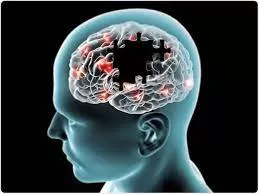
Contrary to the commonly accepted belief, neuroscientists assert that the brain lacks the inherent capability to rewire itself in response to challenges like vision loss, amputation, or stroke. The widely held idea that the brain can reorganize and repurpose specific regions to compensate for deficits is deemed fundamentally flawed, as indicated in scientific literature.
According to an article in the journal eLife, researchers argue that what actually takes place in such situations is the training of the brain to harness pre-existing but dormant abilities. The concept of the brain undergoing a comprehensive reorganization and repurposing of its regions, as often portrayed in remarkable stories of individuals with extraordinary adaptations, is deemed inaccurate.
John Krakauer, Director of the Center for the Study of Motor Learning and Brain Repair at Johns Hopkins University, notes the allure of the notion that the brain can undergo remarkable rewiring but emphasizes that the actual explanation for such phenomena is different from the prevailing understanding.
In their article, the neuroscientists scrutinize ten influential studies that claim to demonstrate the brain’s reorganizational capabilities. One such study from the 1980s at the University of California, San Francisco, which focused on the loss of a finger and its impact on brain representation, is contested.
The co-author of the eLife article, Tamar Makin from the Medical Research Council (MRC) Cognition and Brain Sciences Unit at the University of Cambridge, challenges this study. In her 2022 research, Makin utilized a nerve blocker to simulate the effect of forefinger amputation, demonstrating that signals from neighboring fingers were already mapped onto the brain region associated with the forefinger even before amputation.
Makin’s findings suggest that the brain’s adaptation to injury doesn’t involve appropriating entirely new brain regions for distinct purposes. Instead, existing signals are heightened in specific brain regions. This understanding of brain plasticity, according to the scientists, is crucial for managing patient expectations and guiding rehabilitative approaches in clinical practice.











